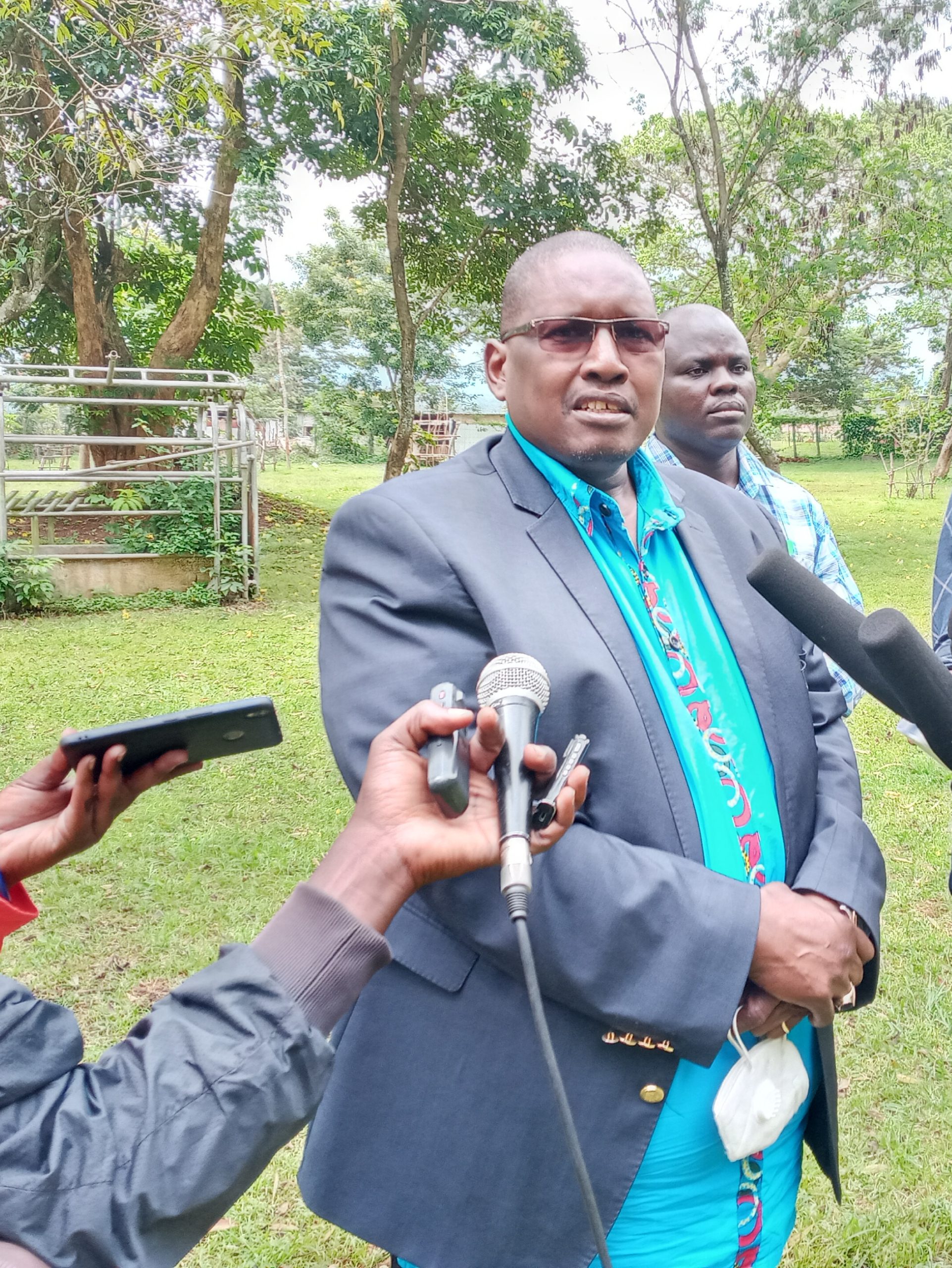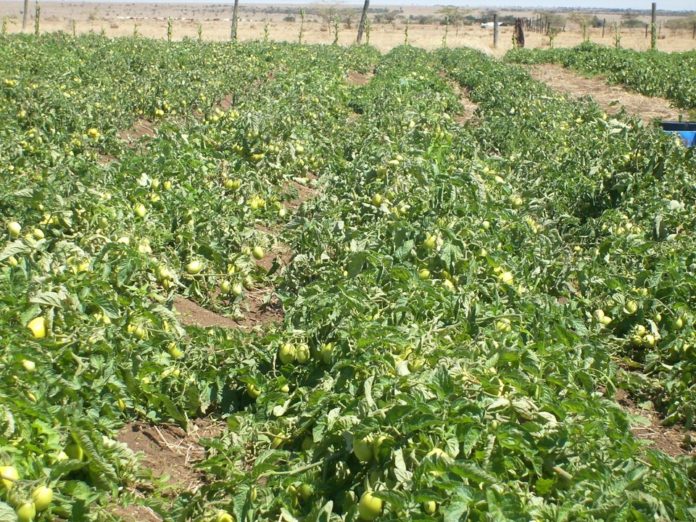By Ok’ongo Oduya
Busia County, Kenya: Tomato farmers are expected to benefit from a research program aimed at boosting production of tomatoes across counties in Kenya. This was recently revealed by Dr. Eliud Kireger, director-general KALRO( Kenya Agricultural Livestock and Research Organization).
Tomato production in Kenya has been increasing yearly through the smallholder farmers and other chain actors in the sector.
It is estimated that in 2018 more than 410, 033 tons of tomato valued 23.4 billion was produced in an area of 20,011 hectares across the country.
According to Dr. Kireger,tomato is the second most important exotic vegetable that is widely consumed in the country accounting for 20 percent of the value of the exotic vegetable.
He says the increase of tomato production is as a result of the good price tomato is fetching on the market.

“There has been an increase in tomato production trends over the years which can be attributed to the increasing volumes and better farms price in counties such as Kirinyaga, Kajiado, Laikipia, Bungoma among others,” he said.
Besides a good market price, Kireger said enhanced irrigation in open field cultivation, expansion in greenhouse production, and the spread of tomato production.
He however noted that diseases such as tomato leaf miner (Tuta absoluta, whitefly, borer, Fusarium wilt, and nematodes are among the challenges facing tomato production in Kenya.
He says lack of appropriate varieties for specific zones tolerant to a certain environment, poor agronomic practices, physiological disorder, and high postharvest losses affects tomato production.
“There are a number of challenges facing tomato production in Kenya. Among these challenges is the invasion of tomato diseases, such as tomato leaf miner, bacteria wilt, and late blight among others.
He further revealed that the lack of added value and marketing issues on tomato farmers is affecting the profitability of tomato production in Kenya.
In a press statement after attending training with extension officers from Siaya and Elegeyo Marakwet on KALRO Climate-Smart Agriculture Technologies on tomato production in at KALRO Alupe, Dr. Kireger noted that KALRO has developed tomato technologies, innovation, and management practices through research to address some of the challenges facing the tomato production value chain in Kenya.
He revealed that KALRO will train extension officers and other service providers in Siaya, Mandera, Kajiado, and Algeyo Marakwet on issues of the tomato value chain.
According to him, this is one of the measures they are taking to address the issue of poverty through increased income, improve food and nutritional security, especially in youths, women, and vulnerable groups.
He said the purpose of the training is to provide trainers of trainers with enough skills of how to facilitate increased productivity through the adoption of good agricultural practices.
“KALRO scientists will train 80 extension staff and service providers from Mandera, Garissa, Kajiado, Siaya, and Elgeyo Marakwet Counties on the tomato value chain. These counties have selected tomato as a priority value chain in which will reduce poverty through increased income, improve food and nutritional security in women, children, youths and vulnerable groups,” he said.
He noted that 521, 500 households from smallholder farmers, agro-pastoralists and pastoralists in Kenya will benefit from the project.
“521, 500 households from smallholder farmers, agro-pastoralists, and pastoralists are among the people, we are targeting with this project. About 163, 350 households from common interest groups and 18,150 households from vulnerable groups and 27 from marginalized groups will benefit from community CSA micro-projects.”
Tomato technologies, innovations, and management practices are part of the activities under Kenya’s climate-smart agriculture project, funded by the World Bank to achieve increased productivity, enhanced resilience, and reduce greenhouse emissions.















